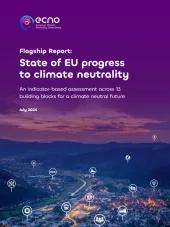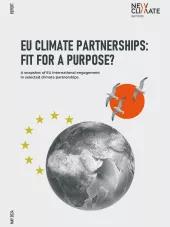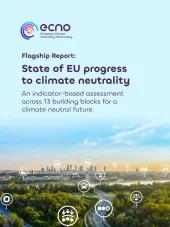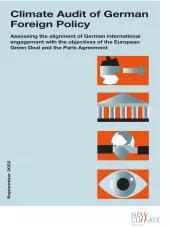The EU has initiated an economy-wide transition to climate neutrality by 2050. While many important on-the-ground developments have accelerated compared to last year’s assessment, the current pace of the transition is still not fast enough. Investments are lagging, underscoring the need for targeted policy adjustments to provide certainty for businesses and citizens alike. Speeding up the shift to a clean economy is fundamental to Europe’s long-term competitiveness and security, and deepening geopolitical tensions further strengthen the case for decisive action.
The European Commission has tabled the Clean Industrial Deal to integrate policy priorities around competitiveness and decarbonisation. Together with the shaping of the EU’s next long-term budget (2028–2034), this provides a specific opportunity to align EU policy with long-term priorities. This flagship report, published under the ECNO project, highlights where the EU is on track and where additional efforts are required to create the enabling conditions for a prosperous, climate neutral future.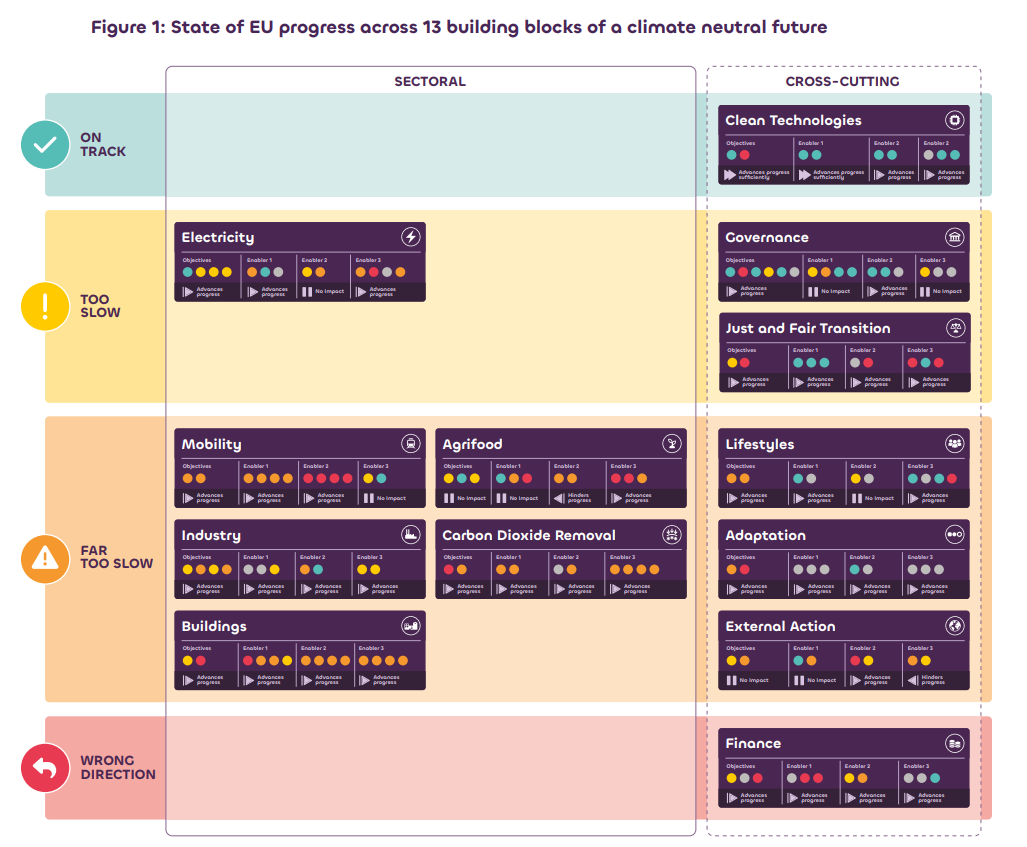
Key messages
The 2025 results show positive momentum in several policy areas:
- The EU’s cleantech base is strengthening. Manufacturing capacities for wind, solar, heat pumps, electrolysers and batteries are growing, with battery production on track to exceed the 2030 target of 550 GWh annually.
- Solar power reached a new record with 65 GW of new capacity installed in 2024, making it the largest single source of electricity in the EU by mid-2025.
- Employment in renewable and environmental sectors is rising, even as coal and heavy industry regions face structural decline.
At the same time, there are also challenges that hinder progress:
- Financing gaps and misaligned incentives: A climate investment gap of EUR 344 billion in 2023 continues to slow industrial decarbonisation and clean technology deployment. Weak uptake of building renovations, heat pumps, wind power and EVs show how misaligned and slow permitting undermine progress, as subsidies and taxation still favour fossil fuel use.
- Persistent vulnerabilities to shocks: Despite resilience-building efforts, the EU economy remains exposed to climate and geopolitical risks. Climate impacts caused EUR 160 billion in economic losses between 2021 and 2023, and dependence on fossil fuels continues. In 2024, the EU imported nearly EUR 400 billion worth of fossil fuels, equal to 2% of GDP, highlighting systemic vulnerabilities.
- Persisting disparities: Europeans continue to strongly support climate action, with a vast majority backing the transition. At the same time, 1 out of 10 EU citizens are affected by energy poverty, showing uneven benefits and persistent disparities. The EU needs to ensure a continuation of its just and inclusive transition funding in the next long-term budget.
- Agricultural policy misaligned with consumer trends: Citizens are shifting diets, with per capita beef consumption dropping below 10 kilograms in 2023. However, the EU’s Common Agricultural Policy still supports emissions-intensive farming. The EU needs to redirect CAP subsidies in its upcoming budget to support plant-based production and agroecological practices, while ensuring support for a fair transition for farmers.
This report is published under the ECNO project. ECNO is a consortium of leading European research organisations with expertise spanning the fields of climate policy, governance, economics, and finance across the whole economy. The ECNO partners besides NewClimate Institute are Ecologic Institute, Climact, Reform Institute, and Institute for Climate Economics (I4CE). It is funded by the European Climate Foundation.




